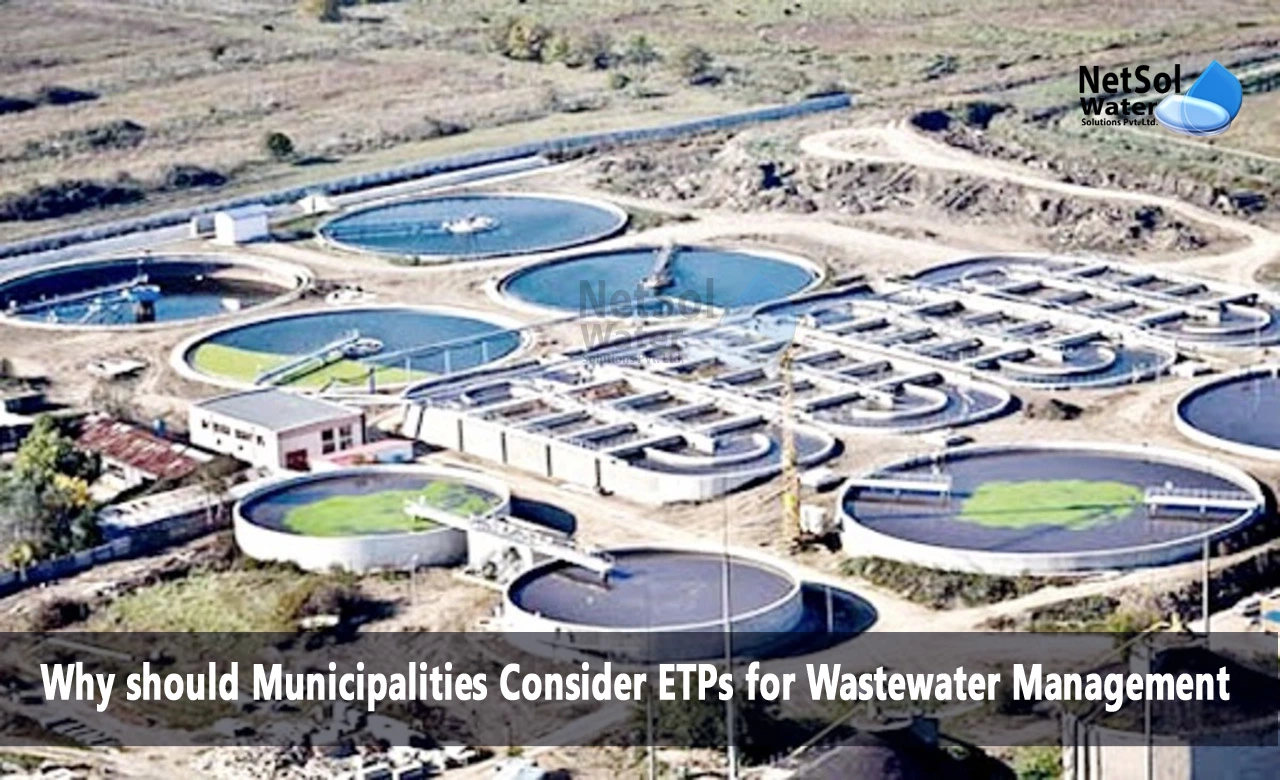Why should Municipalities Consider ETPs for Wastewater Management?
Municipal wastewater containing sewage as well as industrial effluents and storm water runoff is typically treated in sewage treatment plants (STPs) before discharge into the environment. However, with increasing population and industrialization, many municipalities are finding STPs unable to cope with the quantity and complexity of contaminants in wastewater. Establishing effluent treatment plants (ETPs) is an option that municipalities must consider to fill this gap in wastewater management.
What are ETPs?
Effluent treatment plants are facilities designed to treat industrial wastewater containing complex pollutants using extensive physical, chemical and biological treatment methods. They can handle large effluent volumes and remove contaminants like organic matter, suspended solids, oil and grease, heavy metals, toxic chemicals etc. ETPs consist of primary, secondary and tertiary treatment units for progressive effluent polishing.
Why Municipal ETPs?
1. Inadequate STP Capacity
Many cities have STPs operating above design capacity and unable to match growing sewage volumes. New STPs require land and capital investment difficult for cash-strapped municipalities. ETPs can fill the gap in treatment capacities.
2. Blending of Industrial Effluents
Partially treated or untreated effluents from industries often enter municipal sewers due to lack of proper regulation. This hinders STP performance which are designed for sewage. ETPs can isolate and treat industrial streams separately.
3. Advance Treatment Capability
STPs employ conventional biological processes unable to remove complex pollutants. ETPs incorporate advanced methods like activated carbon, chemical precipitation, oxidation etc. for better treatment.
4. Stringent Discharge Norms
Tightening environmental regulations require municipalities to meet strict new effluent parameters. Upgrading existing STPs may be technically or economically unviable. ETPs enable compliance.
5. Water Reuse Potential
Tertiary treated effluent from ETPs can be safely reused for applications like horticulture, street washing, Toilet flushing, industry makeup water etc. Augments water supply.
6. Treatment of Toxic Wastes
ETP capabilities allow handling of hazardous effluents from industries like textiles, pharma, petrochemicals etc. Saves industries costs of offsite landfill disposal.
7. Resource Recovery Potential
Municipality owned ETPs can recover resources like cellulose, biopolymers, metals etc. from effluents. Also enables district heating or cooling via waste heat utilization.
8. Land Availability
New ETPs can be setup on city outskirts where land availability and buffer zone requirements are better met. Retrofitting existing STPs may be constrained due to space limitations.
9. Centralized Cluster Treatment
Large centralized ETPs for industrial zones enable cost savings compared to individual units. Also facilitates pre-regulation of effluent discharge into sewers.
10. Private Investment Potential
Municipalities can attract private capital by awarding ETP construction and O&M contracts to developers. Land provision and guaranteed effluent supply by industries lowers project risks.
Key Planning Aspects for Municipal ETPs
1. Wastewater Characterization
Extensive sampling and analysis provides data on effluent types and pollution load from industries needed for ETP design considerations.
2. Projected Effluent Volumes
Current and 20-30 year projections of effluent generation from residential buildings, industries, commercial complexes etc. are needed to size ETP capacity.
3. Treatment Standards
ETP discharge standards should meet municipality wastewater norms as well as zero liquid discharge requirements if effluent reuse is planned.
4. Technology Selection
Appropriate primary, secondary and tertiary treatment methods suited for projected effluent mix must be selected for high treatment efficiency.
5. Land Requirements
Adequate land area with buffer zone allowance must be identified during siting of ETPs to minimize impacts on surroundings. Outskirts are preferable.
6. Infrastructure Needs
Power, water, manpower, access roads, testing lab, effluent conveyance pipelines, sludge disposal facility etc. must be provisioned.
7. Financial Modeling
Municipality must evaluate project costs, user fees, development models (PPP, hybrid, own investment) and identify a feasible financial plan.
8. Compliance Monitoring
Effluent quality monitoring mechanisms and regulatory oversight processes need establishment for industries discharging into municipal ETPs.
9. Operational Manpower
Adequate qualified plant managers, technicians and other personnel need recruitment for proper long-term O&M of ETPs after commissioning.
10. Effluent Reuse Planning
If reuse is envisaged, the applications, storage/distribution infrastructure and user agreements must be detailed to utilize the reclaimed water fully.
Case Studies of Municipal ETP Projects
1. Ahmadabad Effluent Channel Project -
Asia's largest effluent conveyance pipeline carries treated industrial effluent from Sabarmati river basin to a centralized ETP with zero liquid discharge. This has reduced river pollution significantly.
2. Mangalore SEZ ETP -
A 70 MLD ETP caters to diverse industrial effluents from processing units in Mangalore Special Economic Zone. Onsite reuse and ZLD help avoid marine outfall discharge.
3. Pimpri Chinchwad ETP -
A 45 MLD effluent treatment facility based on UASB-SBR process handles effluents from small industries that earlier entered the sewage stream untreated.
4. Chennai SIPCOT ETP -
Implemented on a PPP model, this 60 MLD ETP with tertiary RO treatment serves a large industrial park exporting treated water to textile units and for township reuse.
Conclusion
Rising pollution levels in urban water bodies due to overburdening of STPs and unchecked discharge of industrial effluents make a compelling case for municipalities to adopt ETP based integrated wastewater management. While requiring significant planning and investment, ETPs can help mitigate STP capacity constraints, enable effluent reuse, instill industrial discharge compliance and aid municipalities on the sustainable development path.
Netsol Water is Greater Noida-based leading water & wastewater treatment plant manufacturer. We are industry's most demanding company based on client review and work quality. We are known as best commercial RO plant manufacturers, industrial RO plant manufacturer, sewage treatment plant manufacturer, Water Softener Plant Manufacturers and effluent treatment plant manufacturers. Apart from this 24x7 customer support is our USP. Call on +91-9650608473, or write us at enquiry@netsolwater.com for any support, inquiry or product-purchase related query.



